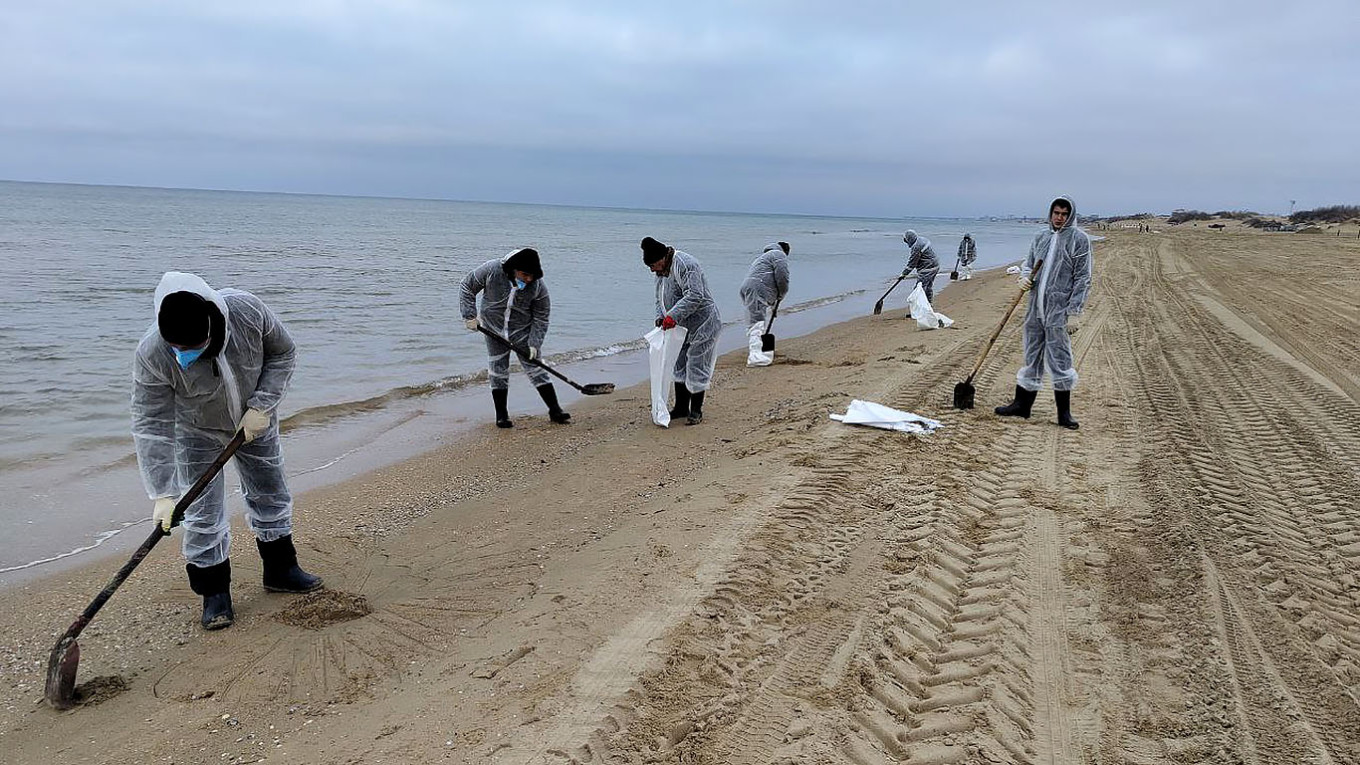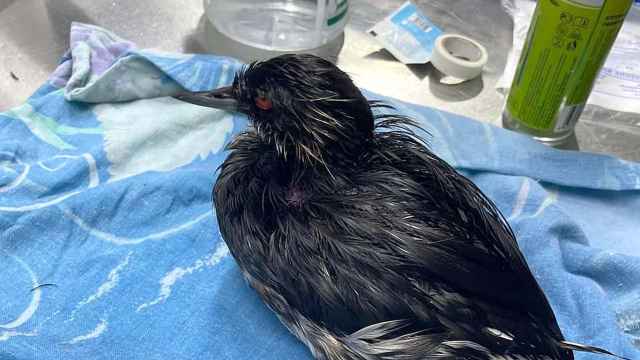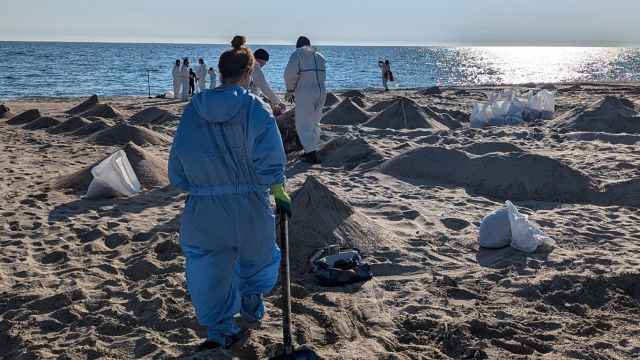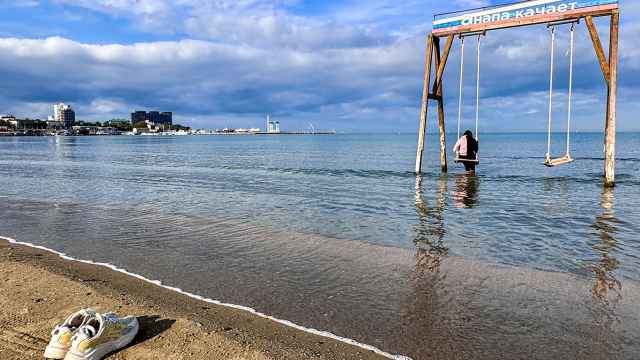A 17-year-old university student died in the southern resort town of Anapa, with pro-Kremlin media reporting that he was possibly exposed to toxic fumes during volunteer efforts to clean up the Black Sea oil spill.
Alexander Komin, a student at Anapa Industrial College, passed away overnight from unknown causes, the college confirmed Wednesday.
Pro-Kremlin Telegram news channels, without citing sources, reported that Komin had volunteered to clean oil from the beach on the day of his death. He was said to have suffered from chronic asthma, and forensic experts are allegedly investigating whether toxic fumes from the spill may have played a role in his death.
Komin’s cousin later told local media that he did volunteer to clean up oil in Anapa but was unsure whether he had done so with a group or by himself. According to the cousin, Komin was “healthy, wasn’t ill.”
The Anapa Industrial College and Krasnodar region emergency response center denied that Komin was part of any organized volunteer group, stating that cleanup efforts strictly prohibit minors from volunteering.
“The college did not send any minors as volunteers. Their participation in cleaning the beaches is strictly prohibited,” the college said in a statement.
The oil spill began on Dec. 15, when two aging tankers carrying 9,200 metric tons of heavy fuel oil were damaged by a storm in the Black Sea. It has since polluted coastal areas in southern Russia’s Krasnodar region and the annexed Crimean peninsula, prompting authorities to declare an emergency.
President Vladimir Putin described the incident as Russia’s most serious environmental disaster in recent memory.
Nearly 8,500 people, including Emergency Situations Ministry staff and volunteers, are involved in the ongoing cleanup, according to the regional emergency response center.
A Message from The Moscow Times:
Dear readers,
We are facing unprecedented challenges. Russia's Prosecutor General's Office has designated The Moscow Times as an "undesirable" organization, criminalizing our work and putting our staff at risk of prosecution. This follows our earlier unjust labeling as a "foreign agent."
These actions are direct attempts to silence independent journalism in Russia. The authorities claim our work "discredits the decisions of the Russian leadership." We see things differently: we strive to provide accurate, unbiased reporting on Russia.
We, the journalists of The Moscow Times, refuse to be silenced. But to continue our work, we need your help.
Your support, no matter how small, makes a world of difference. If you can, please support us monthly starting from just $2. It's quick to set up, and every contribution makes a significant impact.
By supporting The Moscow Times, you're defending open, independent journalism in the face of repression. Thank you for standing with us.
Remind me later.






